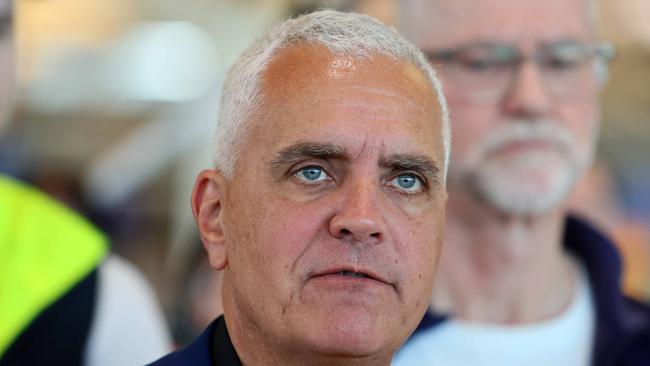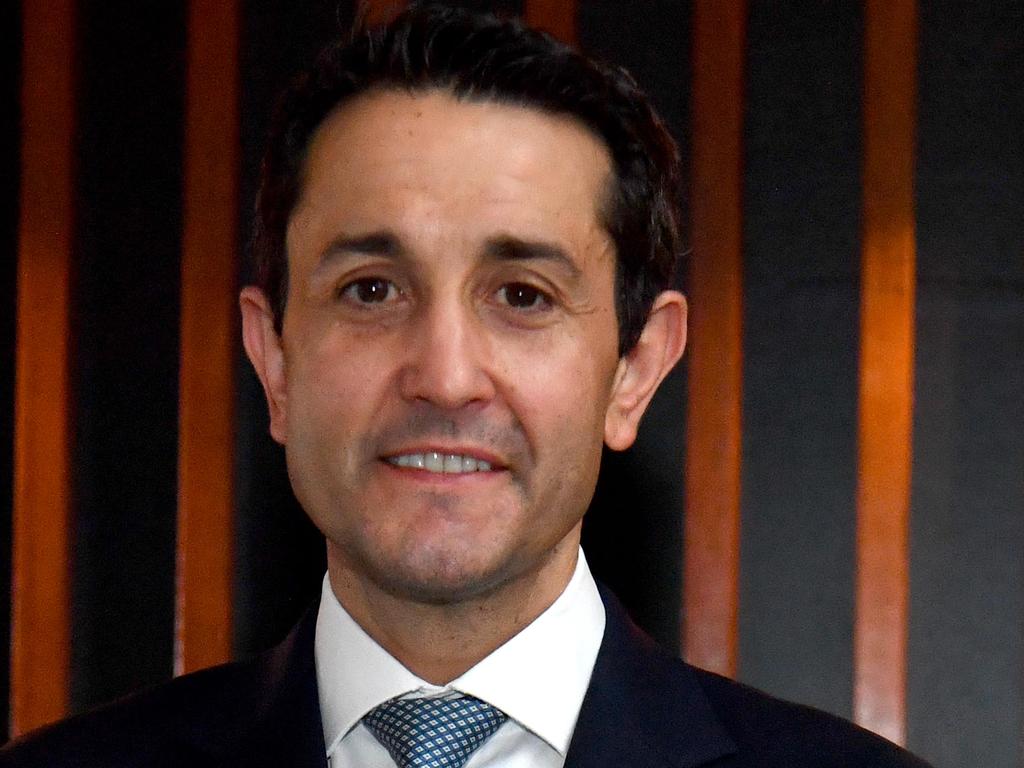Clear for takeoff: Transport Workers Union on flight path to chaos
The TWU will investigate deploying multi-employer bargaining agreements across the aviation industry, as flight attendants launch action demanding an increase to minimum pay rates of up to 30 per cent.

The Transport Workers Union will investigate deploying multi-employer bargaining agreements across the aviation industry, as flight attendants launch action demanding an increase to minimum pay rates of up to 30 per cent.
In a new industrial relations flashpoint, the TWU’s national council has endorsed a strategy to explore advancing multi-employer agreements beyond ground crew to thousands of cabin crew and airport staff.
TWU leader Michael Kaine told The Australian that “multi-employer bargaining would put an end to airlines and airports profiting from bidding wars where contractors slash wages and safety standards to win business”, in a stance that is set to spark fresh conflict with airlines.
Mr Kaine has already declared the union has been emboldened by Labor’s landslide election win and is prepared to “shut down Australian transport” in pursuit of higher pay and better conditions.
“We need to work with other unions across above-wing and on-airport functions – aviation workers all face the same race-to-the-bottom pressures,” Mr Kaine said on Tuesday.
He added that the airport workers involved would include customer service agents and aviation screeners.
Australian Services Union national secretary Emeline Gaske, who leads the biggest union covering airline industry workers, said: “Multi-employer bargaining is a critical tool to boost wages, and we’re exploring that as well as direct bargaining to lift pay and conditions in the sector.”
But while the ASU can see the benefits for the TWU in multi-employer bargaining, it is understood senior ASU officials would need to be convinced that the strategy would outweigh the benefits to its own members of continuing to pursue direct bargaining with companies.
The TWU stand came as the Flight Attendants Association of Australia launched Fair Work Commission proceedings to lift the minimum pay and conditions of workers covered by the aircraft cabin-crew award. The claims propose a new wages and classification structure which, if granted, would increase minimum pay award rates for cabin crew by 20 to 30 per cent, depending upon the classification.
The current rates translate to an average base annual salary for award-reliant entry level crew of about $53,000.
The union is seeking more stability and certainty about rosters; entitlements to mid-duty rest breaks; and “fair pay for all hours worked” including overtime and reserve duties.
FAAA manager of industrial relations Steven Reed said the existing award had cabin crew working under “bare-bone conditions and, what we would describe, as poverty pay”.
“We don’t think there has ever been a better time to make this submission and there’s a range of reasons for that, notwithstanding the fact that a Labor government has just been re-elected,” Mr Reed said.
“Given the majority that the Labor government now holds, our expectation is that they will, as they have with other award variations, champion this one for cabin crew who are aviation’s first responders.”
He said approval of enterprise agreements through the Fair Work Act’s better off overall test was measured against the “very inferior award”.
While the FAAA was examining multi employer bargaining claims against regional airlines, Mr Reed said many employers were reluctant to bargain for an agreement so improving the award was the union’s focus.
“They want to keep them on the bare-bones modern award so strategically we have made the modern award the target of significant improvements so, even if you cannot organise (workers) to be part of an enterprise agreement, their core conditions will be significantly better even based on the minimum conditions that need to be raised,” he said.
Mr Reed said 90 per cent of the application was “not necessarily about pay; it is about conditions so they are getting proper rest, their fatigue is being managed appropriately”.
He said the rates of pay for Virgin cabin crew covered by an enterprise agreement were very close to the award rate.
“Even with enterprise agreements, what the employers are trying to do is keep the rates very close to the modern award rates so that’s why we are pursuing increases in the modern award rather than just through collective bargaining,” he said.
He cited last year’s agreement with Qantas that will deliver pay rises of up to 30 per cent for international cabin crew. After capitalising on Labor’s “same job, same pay” laws, the FAAA also reached an agreement with Qantas in March that will result in more than 750 flight attendants employed via labour-hire companies receiving pay rises of up to $22,000.
Following separate action by the TWU, almost 1500 low-paid Jetstar cabin crew endorsed an agreement that will see them receive a $8000-a-year increase in remuneration.
In reference to the TWU wanting to explore industry-wide multi-employer bargaining, Mr Reed said: “We don’t pass resolutions saying we’re going to do things, we actually just do it.”





To join the conversation, please log in. Don't have an account? Register
Join the conversation, you are commenting as Logout